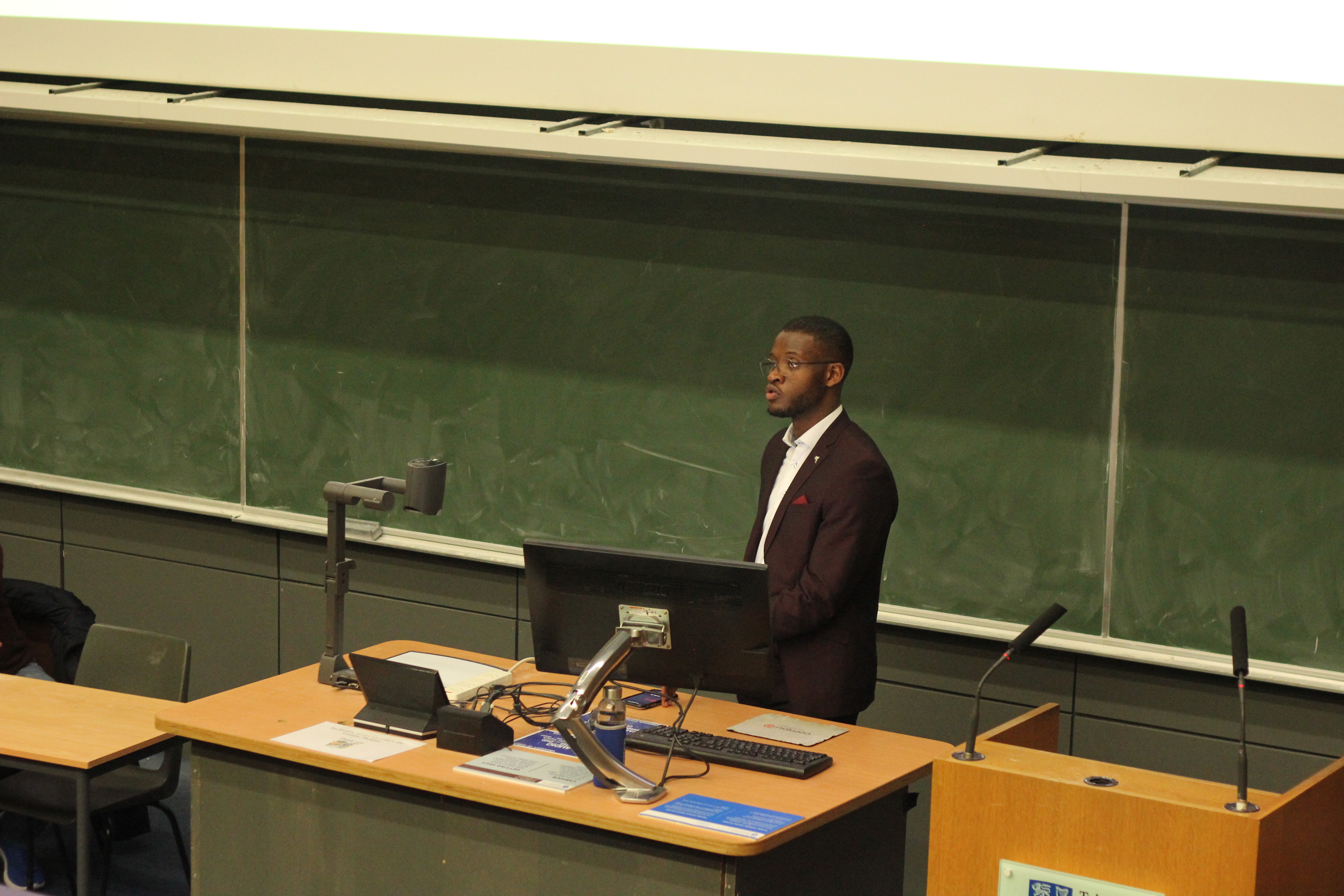Reforms to DUCAC’s voting system, increasing funding transparency and a spring AGM were the primary topics of discussion at the organisation’s first open student forum, held yesterday evening.
Around 20 students attended the event in the Joly Theatre, at which DUCAC’s first student chair, Jemil Saidi, presented possible reforms to the quiet student attendees, with the assistance of the organisation’s administrator, Aidan Kavanagh.
The purpose of the event was to allow students to voice their concerns about possible changes to DUCAC’s constitution and gauge clubs’ opinions on the proposals, according to Saidi.
Saidi presented his plans for a major constitutional change to DUCAC’s voting structures, a proposal he first brought to DUCAC members in April as vice-chair. The new system would allow two delegates from each club to vote at the annual DUCAC AGM, instead of the current system whereby all sports club and Pavilion Bar members are given a vote.
By allocating an equal number of votes to each sports club through the use of a delegate system, ”everyone has an equal opportunity for someone to run and be equally represented,” Saidi argued. The current system has been criticized for allowing larger clubs to dominate the organisation’s executive committee.
“Clubs don’t show up to the AGM purely because they feel they are not going to get anyone elected,” Saidi said.
The motion to amend the constitution must be submitted by 10 DUCAC clubs, which would lead to an EGM being called with two weeks to vote on the proposal. A two-thirds majority of voting DUCAC members is required for a vote to pass.
Discussion then moved to another one of Saidi’s previously proposed amendments: that approved budget allocations would be made public on the DUCAC website. He argued that publishing the budget allocation will reduce “hearsay and animosity” among clubs.
Kavanagh weighed in heavily on the proposal, presenting some advantages and concerns associated with increasing DUCAC transparency.
Following questions on the proposal, Kavanagh said that only the total amounts given to each club would be made public, not a budget breakdown. “You wouldn’t be able to see what you’re paying your coach, for example,” he said.
Some clubs might be concerned that opponents will view their budgets, he said, adding that limitations could thus be put in place on the budget allocation’s availability. Rather than publishing the figures on the DUCAC website, the allocations could be emailed to club captains, or be password protected.
A show of hands revealed that all attendees were in favour of reforming the voting structure and increasing transparency around DUCAC budget allocations.
Moving to an open discussion, Kavanagh turned the conversation towards the timing of the DUCAC AGM, suggesting that electing the executive committee in Hilary term would be more efficient.
The DUCAC constitution currently stipulates that the AGM must be held in the third week of Michaelmas term. Kavanagh said that moving the AGM would allow the committee “to start their term bang at the start of September”.
Another DUCAC student forum is expected to be held later in the academic year.






